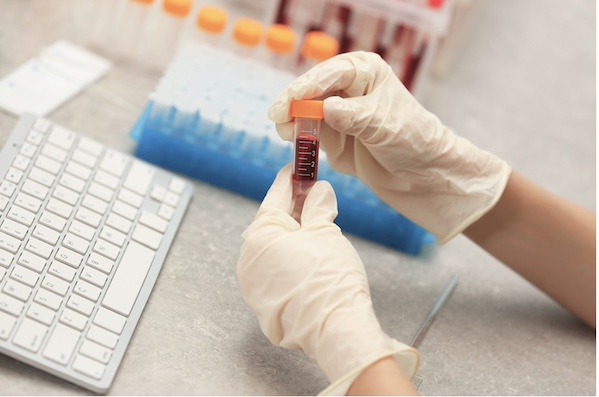New Blood Test Identifies Neuroendocrine Subtype of Advanced Prostate Cancer
January 13, 2024
Source: drugdu
 266
266

Roughly 10-15% of individuals with metastatic castration-resistant prostate cancer (CRPC) eventually develop neuroendocrine prostate cancer (NEPC), a challenging cancer subtype. This transformation is marked by a change from androgen-dependent cancer cells to those that no longer respond to androgens. Diagnosing NEPC typically involves a biopsy from a metastatic tumor, but this can be uncertain due to timing issues and the heterogeneous nature of metastatic tumors. Now, researchers have developed a blood test that can reliably detect NEPC and differentiate it from CRPC-adenocarcinoma (CRPC-adeno).
In previous research, an international team of researchers from Dana-Farber Cancer Institute (Boston, MA, USA and the University of Trento (Trento, Italy) examined biopsy tissue samples to identify genetic and epigenetic shifts accompanying this shift from cancer cells that are dependent on hormones called androgens to cancer cells that no longer even recognize androgens. They discovered distinctive genome-wide epigenetic alterations, particularly in DNA methylation, that differentiate CRPC-adeno from NEPC. These changes can be identified in blood, as the body naturally releases cell fragments, including cell-free DNA (cfDNA), which carry these epigenetic markers. This insight led to the development of the NEMO (NEuroendocrine MOnitoring panel) blood test. NEMO examines cfDNA in blood plasma for specific DNA fragments and assesses their methylation levels. It reports two critical metrics: the tumor fraction (the ratio of tumor to normal DNA in the blood, indicating disease burden) and the tumor type (CRPC-adeno or NEPC), presented as a score on a spectrum to account for possible mixed cancer types.
NEMO was tested in various preclinical prostate cancer models and blood samples from patients with known prostate cancer subtypes, demonstrating high accuracy in subtype identification. In two clinical trials involving aggressive CRPC patients, NEMO’s tumor fraction estimates aligned with established disease burden measures, suggesting its potential in tracking treatment response, particularly valuable as standard measures like prostate-specific antigen levels become less reliable during the transition to NEPC. The test accurately identified NEPC patients and also pinpointed individuals showing early signs of transitioning to NEPC. The insights provided by the NEMO panel could guide clinicians in choosing targeted treatments and assist researchers in understanding the disease more deeply. Additionally, this testing method holds promise for application in other cancer types to differentiate between subtypes.
"As prostate cancer treatments get more effective, we expect the emergence of different types of treatment resistance like neuroendocrine prostate cancer that help them evade treatment," said Himisha Beltran, associate professor of medicine at Dana-Farber Cancer Institute. "We hope this blood test can be used by clinicians to determine if a patient is developing neuroendocrine prostate cancer."
Source:
https://www.labmedica.com/molecular-diagnostics/articles/294799880/new-blood-test-identifies-neuroendocrine-subtype-of-advanced-prostate-cancer.html
Read more on
- The first subject has been dosed in the Phase I clinical trial of Yuandong Bio’s EP-0210 monoclonal antibody injection. February 10, 2026
- Clinical trial of recombinant herpes zoster ZFA01 adjuvant vaccine (CHO cells) approved February 10, 2026
- Heyu Pharmaceuticals’ FGFR4 inhibitor ipagoglottinib has received Fast Track designation from the FDA for the treatment of advanced HCC patients with FGF19 overexpression who have been treated with ICIs and mTKIs. February 10, 2026
- Sanofi’s “Rilzabrutinib” has been recognized as a Breakthrough Therapy in the United States and an Orphan Drug in Japan, and has applied for marketing approval in China. February 10, 2026
- Domestically developed blockbuster ADC approved for new indication February 10, 2026
your submission has already been received.
OK
Subscribe
Please enter a valid Email address!
Submit
The most relevant industry news & insight will be sent to you every two weeks.



